Introduction
And even in our so-called information age, when attention spans grow shorter and the interludes between beeping push notifications are few, productivity has become a central trait. Being able to get more done with less work is not only useful for those looking to earn thousands a month online, but it’s also important in order to accomplish anything upper level as well. But how do we create the habits that keep us producing day in and day out? Sometimes the answer can be as simple or complex, it likely stems from learning from those who have cultivated their life. Books around the theme of Daily Productivity Habits Those books can give you that final piece of knowledge or motivation to get into those other routines and be successful! This post will cover some of the big ideas I took away from these five books about building and maintaining habits in our daily lives, allowing us to completely change who we are.

Main Content
Being productive does not only mean that you have to work more, it also means working lucratively by manipulating the time. You might want to develop these 6 habits for discipline, focus, and efficiency that produce the best you: Here we have five life-changing books which deliver a detailed guide to how one should produce habits for productivity through your daily schedule that will be beneficial in improving the quality of your personal and professional front.
“Atomic Habits” by James Clear
Summary:
One of the seminal works in habit formation is “Atomic Habits.” James Clear breaks down the kind of thinking required to form long-lasting and effective habits, bringing together all kinds psychological theory into a few simple steps. The book touches on the belief that meaningful change is driven by small changes that happen consistently over time…Perhaps where it strikes home most, in my opinion: Atomic habits.
Key Lessons:
- The Power of 1% Improvement: Clear talks about how improving by only 1% a day can lead to remarkable changes in the long run. The concept is a derivation from the compounding mathematics that small incremental consistent gains lead to exponential growth
- The Four Laws of Behavior Change: Clear’s method for habit crafting and destruction is based around four simple rules, which are:
- Cue-ify It: Give your habits some obvious cues.
- Hook it: Reinforce the habit.
- Simplify: Lower the amount of friction associated with performing the habit.
- Make it rewarding: Align a reward with the behavior.
- Habit Stacking: Working off the power of routine, habit stacking means you attach a new good behavior with an existing old one for example. An example of this is you want to read books as a habit, so you can stack it onto your current morning coffee routine.
Practical Application: It can begin with a single habit that you want to create. They can then craft a habit loop that naturally integrates into their daily schedule by using the Four Laws of Behavior Change. As an example, let´s say you want to exercise every day: You can put your workout clothes on the night before (Make it Obvious), make a playlist with music you like while working out (Make it Attractive), start by doing just 5 minutes of physical activity at first so it becomes much easier( Make if Easy) and track all that in a journal or as notes do look back later at how far into the journey is fulfilling.
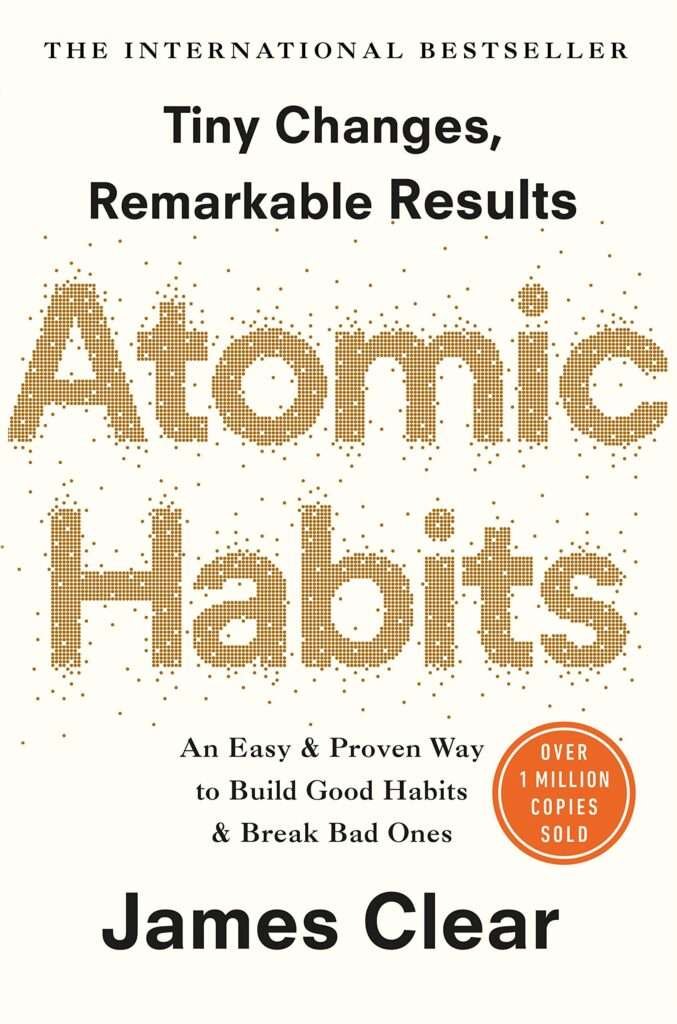
“The Miracle Morning” by Hal Elrod
Summary:
The Miracle Morning by Hal Elrod is an absolute must-read if you want to bring energy, focus and purpose each day. Elrod would argue that the way you start your morning largely determines how the rest of day turns out. A pre-book concept has made many of them become an avid follower and the principle is “Wake up one hour before you plan to start each day, get prepared mentally, physically and emotionally.
Key Lessons:
- The S.A.V.E.R.S. Routine: At the heart of ” The Miracle Morning” are its six steps, or savers as you may call them:
- Try out silence: Start your day with a few moments of calm reflection or meditation to put your mind at ease.
- Positive Affirmations: use affirmations to reiterate your goals and get the confidence required for success.
- Use visualization: Think about your goals, and spend a good two to five minutes visualizing what those will look like when they are reached.
- Workout: Working up a sweat helps you get out of your head.
- Reading: Read something educational or inspirational.
- Scribing: Record thoughts, intentions or reflections in a journalA way to see how you are doing and remove from your mind.
- The Miracle Morning: Early riser Justin Pritchard says that author Hal Elrod wrote this book, and he believes in rising early to give himself time for vital self-care activities before the noise of most normal mornings.
- Adaptability: Elrod recommends doing the routine for an hour, however recognizes that it is just as effective when done in less time or even more — a crucial component to allowing similar routines into our own lives.
Practical Application: If you do want to have your own Miracle Morning, then the best way is to make use of an alarm that will be set a bit over one hour before other alarms. Start by spending only a few minutes on each step of the S.A.V.E.R.S. routine and build up to it as you become more comfortable with your practice. For instance, you could make all of the tasks 5 minutes and start with meditation (adding exercise in once your legs are a bit more awake) or if fasting for weight loss is part of what resonates well within you then keep reading below to see how those can coincide.
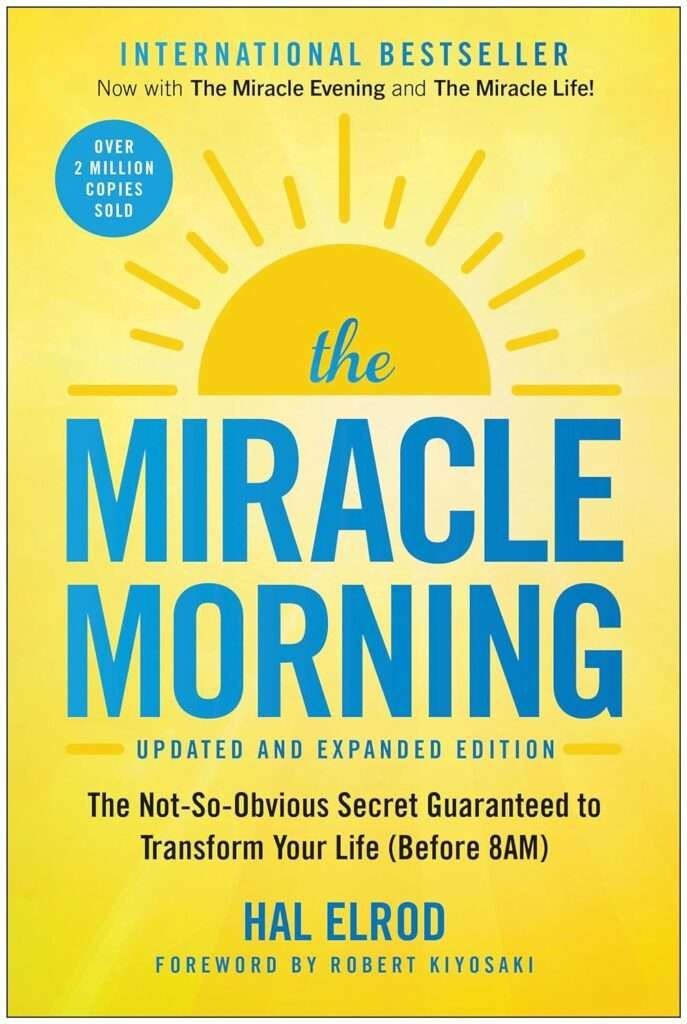
“Deep Work: Rules for Focused Success in a Distracted World” by Cal Newport
Summary:
In a time where we are constantly connected and distracted, Deep Work by Cal Newport delivers an interesting take on productivity. Deep Work: Rules Type of work that is becoming increasingly rare in our attention-distracted economy Only source works will produce both high quality and the appearance quantity Accomplishing more professionally worthwhile results Long produced by CEOs, physicians, journalists etc. ActionListener Skills can be systematically cultivated af Deep Works are fundamentally a practice to build up – Newport
Key Lessons:
- The Deep Work Hypothesis: Newport declares that the power to perform deep work is something which gets it done in today economy. If you master this, your business will do very well over time whereas if you fail to adapt in that manner.. it may become hard for them to keep up.
- Four Rules for Deep Work: Newport provides a set of basic rules to help structure deep work into your life.
- Work Deeply: practicing time blocking, designing your environment and rituals to maximize attention spans.
- Enjoy Boredom: Instead of giving in to distractions at the first sing of boredom, use this time as a way to train your brain away from needing that type external stimulus.
- Quit Social Media: Only Use Digitals Tools That are `Net Positive:` quit everything that provides little value in your personal and professional life.
- Don’t Drain the Shallows: Manage and reduce shallow work (easy, unimportant tasks) using automation, delegation or elimination.
- The Craftsman Mindset: Here Newport juxtaposes the superficial shards-of-effort philosophies of most workers with a craftsman approach that prioritizes depth, sees everything as practice rather than productivity and values quality over fast.
Practical Application: First, you should pinpoint one or two time blocks in your day that can be spent entirely on deep work. During those times, get rid of as many distractions you can: silence your phone notifications while working on a task; close all tabs that are unnecessary for the job at hand and let others know not to disturb. The time of these deep work sessions should be gradually increased as you see improvements on your ability to focus.
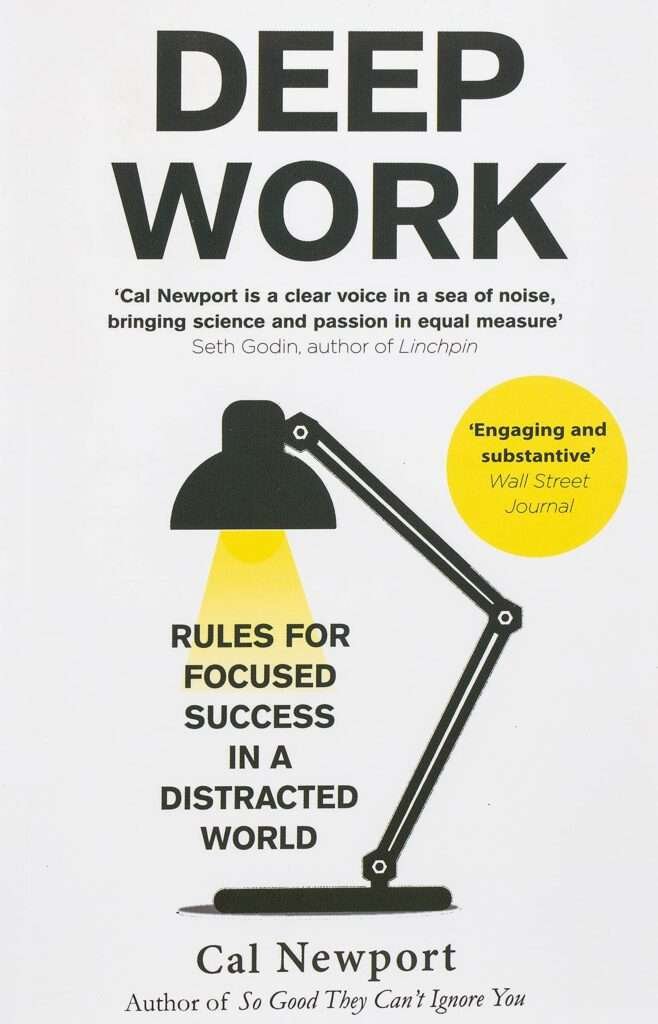
“The 5 AM Club” by Robin Sharma
Summary:
The 5 AM Club written by Robin Sharma is a book of fiction for the most part intermixed with some practical lessons around solving the dilemma to inculcating getting up at 5 AM sharp in your routine can change not only how productive you are but also what quality life one leads. It is the fictitious account of two broke people who are introduced to a billionaire and what he teaches them about waking up early, having an ideal morning practice.
Key Lessons:
- The 20/20/20 Framework: According to Sharma you should split your first hour of the day into three twenty minutes increments;
- EXERCISE: -Its time to get moving, energetic workout is a great mood booster and will start the burning of your all kinds of muscles.
- Reflect: Whether it’s in meditation, journaling or some other form allow time for yourself to be reflective and set the tone of your day.
- Grow: Make space to learn through reading, podcasting or trying something new.
- The Value of Waking Up Early: If you wake up at 5 AM, or even earlier, your day starts free from the usual distractions and demands. The perceived advantage slithering in early to help one’s craft or career prospects.
- The Victory Hour is the first hour of your day and sets up you for success in all aspects of life. If you win this hour, its impact on the rest of your day is much more effective.
Practical Application: If you are a beginner to learning how to rise early, then practice it like slowly increasing the time or your rising till 5 am. The Victory Hour — Work Out (20 minutes), Meditation or Journaling (20 minutes) and Learning Something New for 10 Minute.
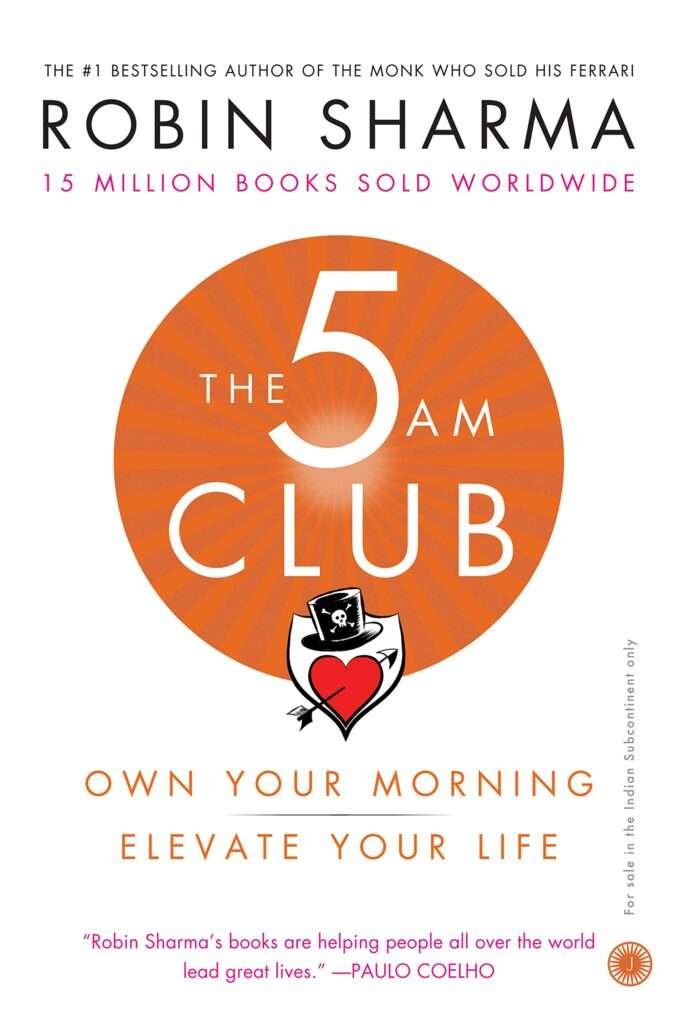
“The Power of Habit: Why We Do What We Do in Life and Business” by Charles Duhigg
Summary:
The Power of Habit: Why We Do What We do in Life and Business by Charles Duhigg — Habits, whether good or bad, impact almost every part of our life. Similar to Fogg, Duhigg also discusses the “habit loop” — cue (B), routine, and reward. If you can understand this loop, then the door will be open for changing habits or creating new ones.
Key Lessons:
- The Habit Loop: Duhigg writes, There is a Cue followed by the routine then hopefully rewarded even if it rewards are in your mind. By understanding and controlling these components you can change your habits.
- Keystone Habits: As some habits have the power to lead a chain of other good habits with them, called as keystone habit. One of the most important ways in which a keystone habit is created is exercise — and eating better, sleeping more effectively, and working how be even hunted as well.
- The Golden Rule of Habit Change: You can never truly eradicate a habit; the goal is to have old triggers lead you into new behaviour. If for example, you eat when you are bored try and find out what activity will give the same feeling of reward as snacking but healthier in that way replace your boring behavior by this cue-reward relationship.
Practical Application: If you want to change a habit, first identify the cue that triggers it and what reward reinforces your behavior. And try alternatives that hit the same reward pattern, only now they are more valuable… or healthier. If stress leads you to smoke, for instance, then instead of smoking when it happens find something else to do like take a short walk or practice deep breathing.
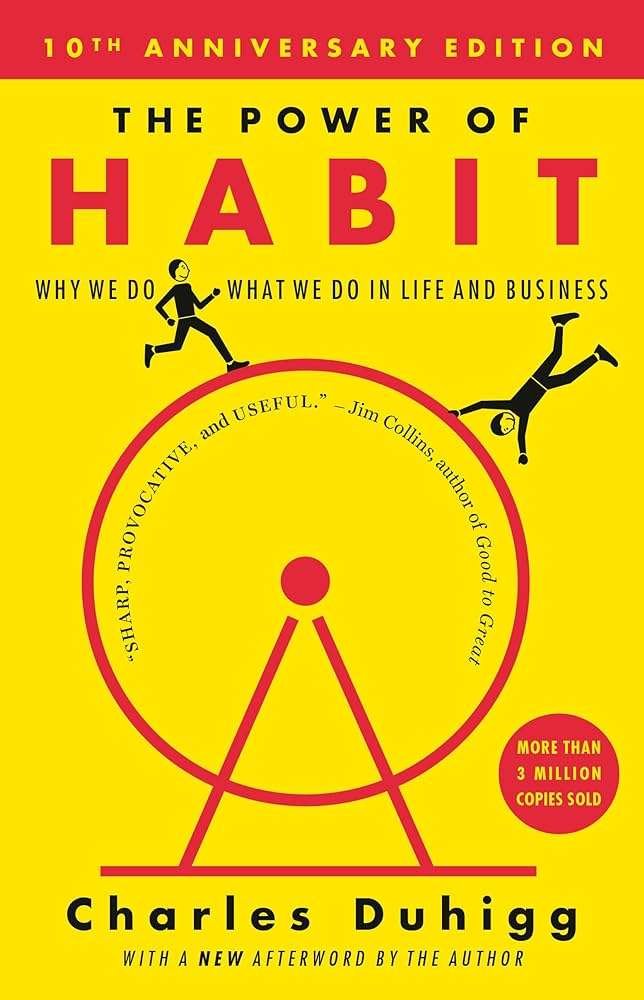
Why We Need This? | Productivity Habits
In a world that is literally attacked by distractions on all fronts (here you can set virtually any: messengers, social networks, emails and twenty-four hours of telephones in which the vibrator will drive anyone to nervous jerks)—it has become difficult to remain focused and not follow heels this good nimble hare under your legs called attention. It is too easy to go off-piste and spend hours on tasks that are not in fact moving us closer towards our goals when we lack the foundation of trustworthy productivity habits. Productivity habits are the corner stone of good time management and self discipline. They keep us motivated, prevent procrastination and help us eliminate a slow slide toward our goals. To sum it up, we require habits for productivity to live the balanced and successful life.
How It Can Help in Our Life? What is the Benefit? | Productivity Habits
Some reasons to develop a productivity habit are:
- Improved Concentration: By developing positive habits, your brain will exhibit good practice in keeping its concentration on the task(s) that matter most thereby minimizing how you get distracted.
- Time Efficiency: Inculcating productivity habits will help you to manage your time effectively so that whatever task is given, can be completed within allocation and deadline.
- Goal Accomplishment: When you are productive, you accomplish your goals little by little and this in itself fuels motivation and confidence!
- It Reduces Stress: being able to focus on the task at hand and not have to worry about what you should be doing or when it is due will alleviate some of that anxiety from disorder and a consistent habit of last-minute work.
- Better Work-Life Balance: By following good productivity habits, you can divide your time for both work and personal life leading to more balanced and fulfilled lifestyle.
Adding these habits to your routine leads you not only to higher productivity but a better life.

Why Books for This Case? | Productivity Habits
Books are just the best, most-accessible tool for self-improvement. Books offer a deep dive into the knowledge, research and (often) years of practice or study needed to provide more in-depth strategy than fast-fix articles/videos. Books serve as the perfect source of an extensive guide that can be referred to for building productivity habits.BorderSide Circle Mindfulness Application Official They have a wide variety of tactics and strategies for you to check out, so that you can pick what suits your needs. Reading can also improve your mindreading is the act of building in reading productive mindset; a routine to constantly learning and growing.
Conclusion of Productivity Habits
Daily productivity habits are a must for anyone looking to optimize their effectiveness and get the results they want. In this article, I have covered the books that provide valuable wisdom and actionable methods to form these habits. Whether you want to set the tone for your day, deeply focus on important tasks or read about the science of habits — these books have got you covered! You can design a schedule that helps your productivity and makes you successful in the long run if you would read these books, understand them practically.
FAQs
Q1: Can these books help with work-life balance?
A1: Yes, many of the strategies in these books are designed to help you manage your time more effectively, which is key to achieving a healthy work-life balance. By focusing on what truly matters and eliminating unnecessary tasks, you can create more time for both work and personal activities.
Q2: Are these books suitable for beginners in productivity?
A2: Absolutely! These books are written in a way that makes them accessible to readers at all levels. Whether you’re new to productivity or looking to refine your existing habits, the advice is practical and easy to implement.
Q3: How long will it take to see results after reading these books?
A3: The time it takes to see results can vary depending on how consistently you apply the strategies. However, many readers notice improvements within a few weeks of implementing the recommended habits. The key is to start small and build up gradually.
Q4: Do these books require any specific tools or apps to follow the advice?
A4: While some books may suggest tools or apps to help with habit tracking or time management, the principles can generally be applied without them. The focus is on understanding the underlying concepts and applying them in a way that works best for you.
Q5: Can these books help with overcoming procrastination?
A5: Yes, all of these books address procrastination to some extent. They provide strategies for building habits that make it easier to start and complete tasks, thereby reducing the likelihood of procrastination. By focusing on small, manageable actions, you can gradually overcome the habit of putting things off.
Check Out The Sources
Check Out More



